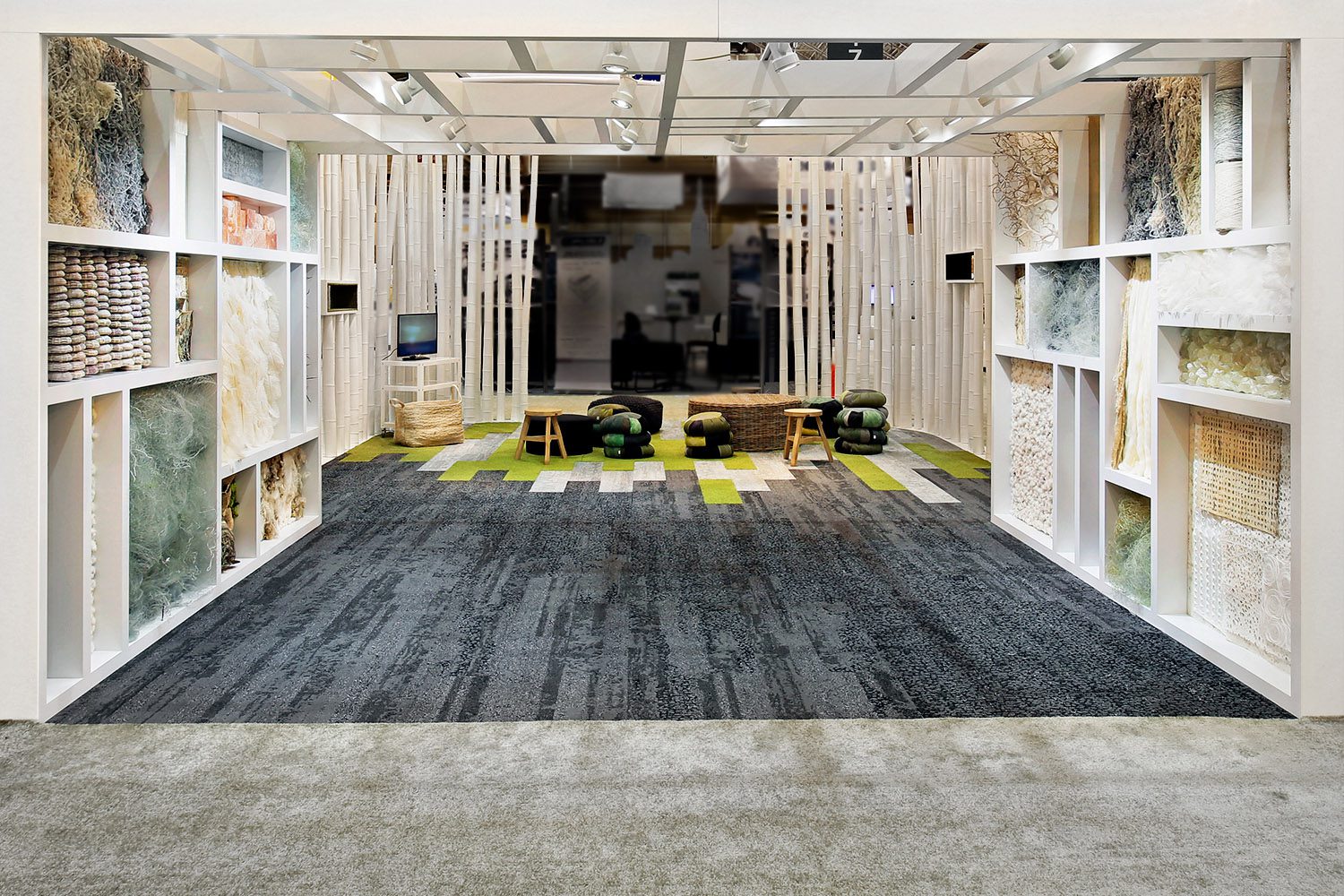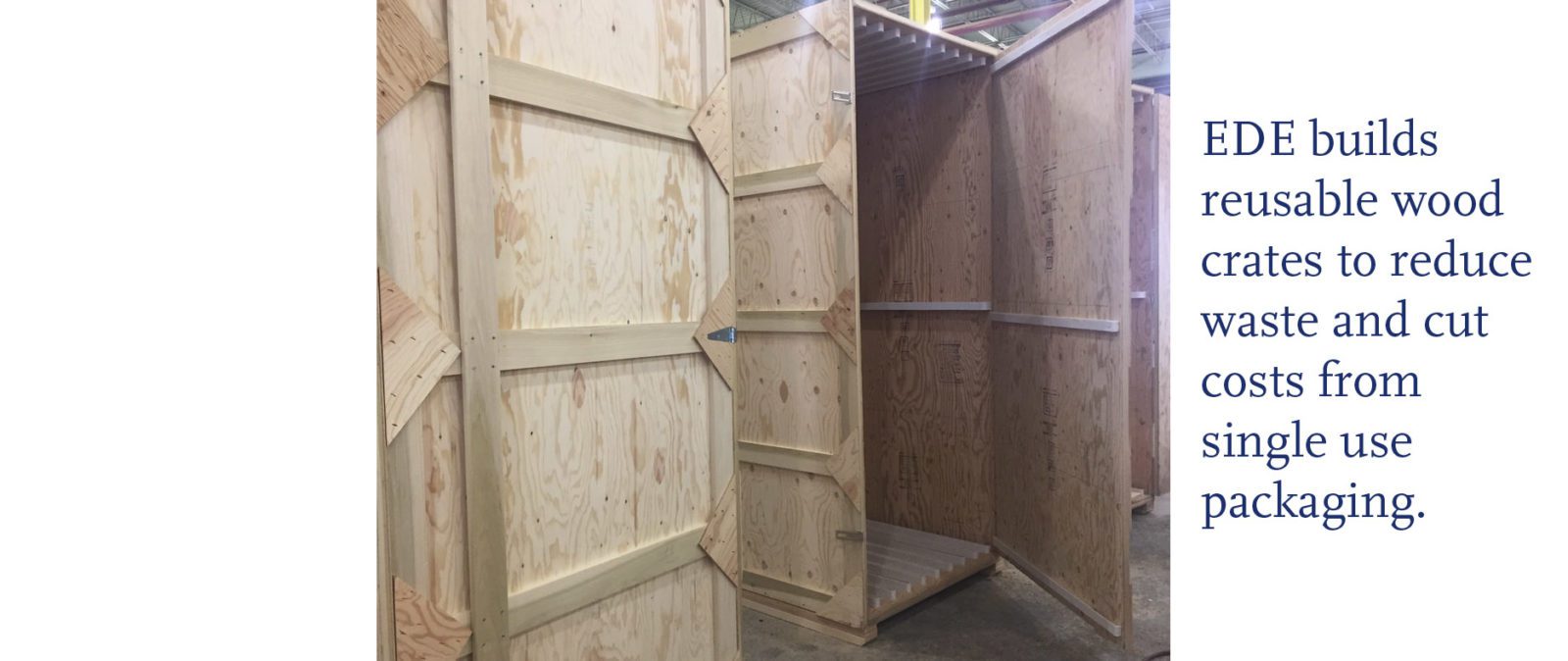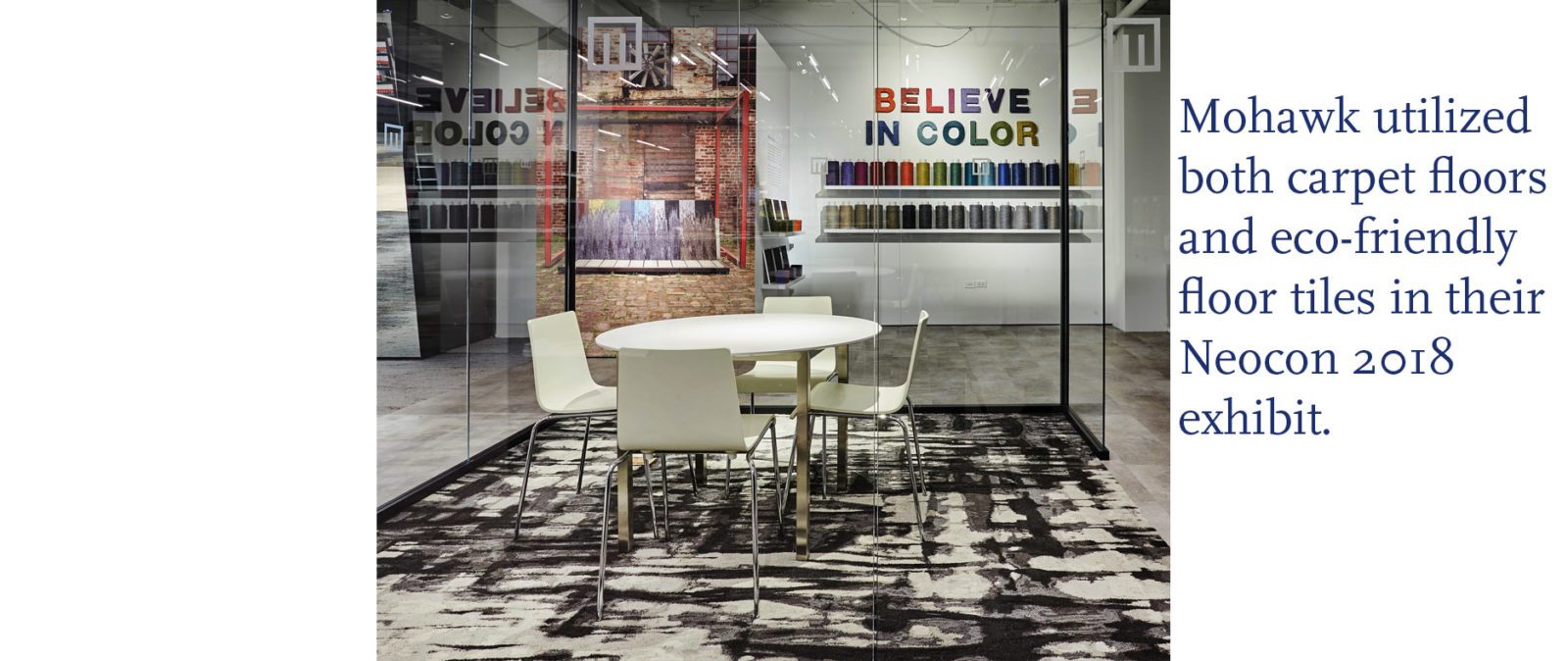Trade shows are notoriously wasteful, with components sometimes thrown away just to avoid shipping costs back to the warehouse. However, each November the Greenbuild show comes around, and with it come pushes for more green exhibits.

Sustainability doesn’t need to be an expensive afterthought. Trade show managers often forget that a part of a brand’s image includes its outreach. Creating an environmentally friendly exhibit opens the door to more conversations with clients and sets yourself apart from competitors. Marketing trends show that customers are increasingly interested in environmentally responsible brands. Get ahead of the curve and show that your company is one that cares.
Consider these sustainable alternatives to your traditional trade show exhibit design.
Green Building Blocks
Some of the most impactful design choices are small and easy enough to implement in your exhibit. These include opting for lighter weight, recycled-content and renewable booth materials that can be recycled or donated.
- Try to use materials you can repurpose or recycle easily. Avoid materials like foam, sheet rock and adhesives which are hard to keep from the landfill.
- Opt for light-weight designs that can reduce carbon emissions and shipping costs.
Packaging
If it’s not necessary, don’t use it! Excessive packaging can impact your sustainability in a big way.
- Avoid single-use packaging: In addition to being sustainable, reusable packaging solutions can cut down on shipping costs and help keep things organized during tear-down.
- Biodegradable options: Choose biodegradable packaging that can be reused later. For example, instead of skids wrapped in harmful plastic, consider creating reusable plywood crates that are biodegradable in the event you need to discard them.
- Visqueen: This film covers carpet to keep it clean during setup. Prior to show opening, this film is lifted and often discarded at show site. What few people know about the material is it is actually a low grade plastic, making it recyclable.
- Shrink-wrap waste: This kind of packaging is everywhere during trade show move-in. Much like other plastics, it isn’t easy to recycle. Put a system in place with your venue recycler to separate plastic film from other waste. Keep in mind, coordination with set up crews may be required.

Flooring for Green Exhibits
Five billion pounds of carpet are sent to landfills annually in the United States.
Avoid flooring designs that result in curved or excess trim, which can impede reuse and recovery. Keep left-over carpet from landfill by visiting the CARE website to find a carpet recycler near you.
A few alternatives to broadloom carpet flooring in your booth are:
Rubber Flooring: contains as much as 91-percent recycled material that would otherwise be burned or dumped in a landfill. Rubber flooring is also easy to install and provides more cushioning for staffers’ and attendees’ feet than other options.
Carpet Tiles: Companies such as Interface and Mohawk have been developing sustainable carpet tile solutions for adaptive use and re-use. Carpet tiles allow you to reinvent your booth with different patterns. The durability of these products can lead to years of use opposed to a couple shows. Another benefit of carpet tiles is stain removal/easy replacement.
Cork: Renewable, sustainable material, and cork tiles are made using a green manufacturing process. Cork floors install without adhesives, and damaged pieces can be swapped out without having to replace the entire floor.
Don’t Give Away Trash
Showcase your brand with waste-free giveaways your attendees will actually use. These can be great ways to build a good reputation among visitors and create buzz about your booth at the show.
The Bags: There are literally thousands of options at different price points. Before you select one, put yourself in the attendees shoes. Would you truly use the the bag you are considering?
Go local: When exhibiting in another city, think about a giveaway that is made in or unique to the city. It’s best if the item does not have to ship to the show.
Handmade items: Food and crafts are thoughtful and present a trendy opportunity to be current.
Promote green lifestyles: Useful items that help people reduce their footprint on a daily basis. Quality bags, recycled notebooks, reusable personal mugs, home energy savings kits or organic seeds.
Conclusion
Creating green exhibits does not mean you have to sacrifice your brand. Organizations who publicly show their values benefit in the long run. In fact, consumer attitudes improve as companies act on environmental and social issues.
You can see some of the creativity that inspires us on our Pinterest page, more of what we are creating on our Instagram feed or see our completed work here, follow and enjoy!



